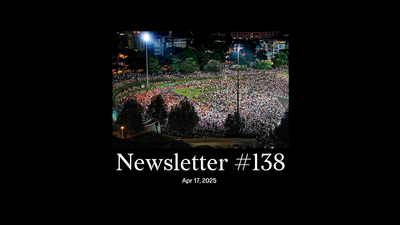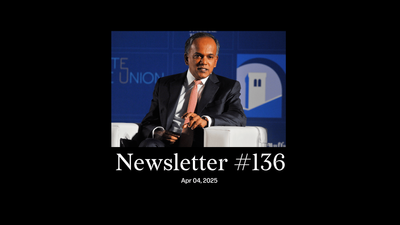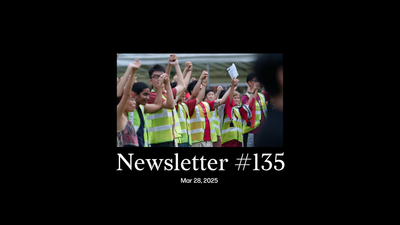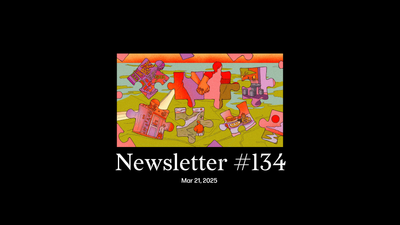Dear reader,
Two politicians have dominated our airwaves this week. There’s Indranee Rajah, a minister, who continues to defend the government’s decision not to hold any individuals accountable for the massive Keppel bribery scheme in Brazil. Then there’s Tin Pei Ling, the member of parliament (MP) who first shot to fame on the coattails of Goh Chok Tong—or, arguably, Kate Spade—and who’s been in the news because she’s just accepted a position as director of public affairs and policy at Grab.
Regulatory capture, blatant Singapore style. My WhatsApp feed has been full of Tin. I feel a bit bad for her. When she entered politics in 2011, she was criticised heavily for her seeming immaturity. She contested as part of Goh’s five-member team in Marine Parade. Yet she persevered. She left her day job to work as a full-time MP. In 2015, her MacPherson district was carved out of Marine Parade: Tin had to fight alone. She won easily, and in 2020 repeated the feat with one of the PAP’s highest victory margins (71.7%).
While I’m obviously opposed to her new role—we write about Indranee and Tin in Singapore This Week—I also wonder about the culture that encourages one to ignore such conflicts, about the larger forces at play.
Other larger forces—global, demographic, developmental—are behind the rapid changes over the past two decades in Holland Village, the subject of this week’s essay, “Fosters and Holland V: belonging, change and loss in Singapore”, by Zachary Hourihane, in his first essay for Jom.
Zachary remembers the Holland V I first knew: “...known as a locale for its crescent-shaped, low-rise, lackadaisical, distinctly lived-in vibe. It’s all a bit run down, really.”
And he laments the recent “slow, insidious metropolis creep…Like much of Singapore, it’s slowly succumbing to architectural globalisation. These contextless glass spires pop up, seemingly out of nowhere, and with no contextual relationship to the built environments they invade.”
Zachary’s bio says he “grapples with cultural rootlessness”, and throughout his essay one senses an exploration of belonging amid change and loss. As I was reading, part of me felt sorrow, remembering the neighbourhood of my youth, near our junior college, where bars would happily serve booze to school kids in uniform. “Just take out your badge,” one waiter at Wala Wala would tell us. It was a different time.
Yet Zachary’s identity makes me hopeful. He is, coincidentally, the second Irish writer in a week in Jom. Last week, Fiachra Ross and I co-wrote a piece on Operation Coldstore.
I remember when I first met Fiki. I was like, “Wah, this ang moh’s Singlish damn power siah.” It was all fun and games, but also, at some level, a reflection of my own naïveté about changing demographics.
I found out later that Fiki had not only grown up here, but probably knows more about Singapore’s modern history, particularly that mid-20th-century period, than anybody else I know.
That Fiki and Zachary are so immersed in Singapore, and are able to write so deeply about subjects that many of us have trouble with, made me think a bit harder about people and change, even savour it.
For even as the Indranees and Tins of this world keep stitching us up in the knots of yesteryear, others are gently untying them, and weaving new fabrics of meaning.
Jom bermimpi,
Sudhir Vadaketh
Editor-in-chief, Jom
If you've enjoyed our newsletter, please scroll to the bottom of this page to sign up to receive them direct in your inbox.






